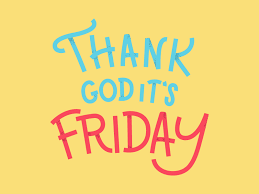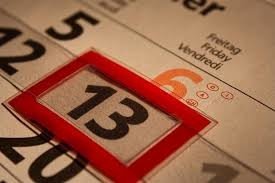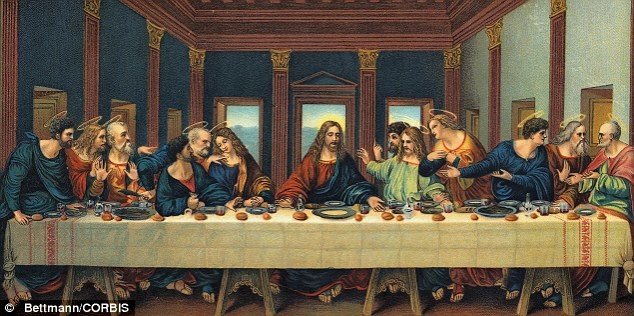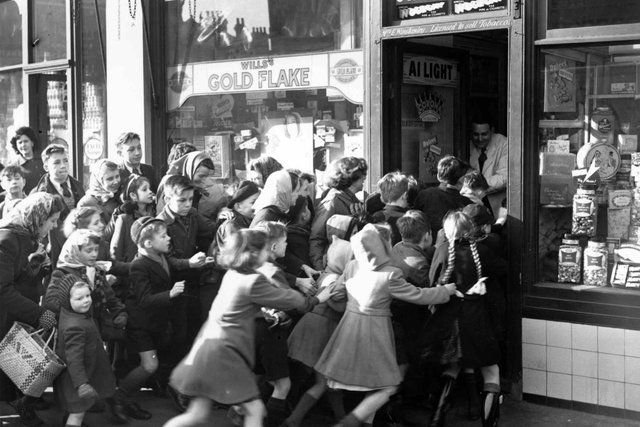Black Friday: How Really Black
Better late than never. while we might have got over the euphoria of black friday, it is necessary we look back into history to see how the Friday became black, and what is black about the Friday.

Thank God it’s Friday!
This historical and culturally rooted phrase, originating from the heartland of America, has found its way into the languages of the global community. In France for example, people say “Enfin le Vendredi!” (meaning, Finally, it’s Friday). In Hebrew, the near equivalent phrase is “Shabbat Shalom!”

In the Philippines, it’s “Salamot diyos ko biyerenes na!”_in Netherlands, it’s “Het is bijna weekend!” (meaning, the weekend is almost here). If you are in Portugal, you’d say “Fim-de-Semana!” (End of the Week). Germans say “Schones Wochenende!” (Nice Weekend). Erdogan’s boys in Turkey say “Yasasin Yann Tatil!”(Hooray! Tomorrow is a holiday). Spaniards say “iFeliz Viernes!” (Happy Friday). Arabians say “Jumat Mubarak!” (Blessed Friday) as a compliment for the religious significance of Friday. Yorubas in Nigeria who have been accused of over-greeting, compliment one another in several ways; “Eku Ola Jimo, Eku isinmi, Eku (Ipalemo) weekend, etc” because there must be one “Owambe” (party) or another on the weekends. If you’re an ardent user of the social media, you’re most likely familiar with the abbreviated version of the phrase – TGIF! Evidently, Friday is naturally a happy day, full of hope and pleasant feelings for most people of the world.
We might be intruding too much into the past, tracing the several hypotheses to the specific origin of the phrase, but certainly, we would arrive at one focal point – it is used to celebrate the start of the weekend around the world. Man, by nature is lazy! He wants fun, he wants relaxation and less work; and that’s exactly the feeling he gets on Friday, as the weekend approaches.
Actually, according to one legend, the etymology of Friday itself is the Old English Frīġedæġ, meaning the "day of Frige", a day set aside to celebrate and worship the goddess “Frige”, supposedly associated with sexuality and fertility.
It would amount to a sheer waste of word, ink, and internet space, travelling through the significance of Friday to every religion and cultural ideology of the world, but then again, from India to Paris, to Rome, to The Vatican, to Jerusalem, to Makkah and Medina, one would arrive at one, same junction – Friday is sacred to man right from the beginning of the human race! In most religions, for example, it is considered the holiest day of the week, the day in which Adam was created, and the day the world would come to an end.

Despite this sanctity and natural sense of relaxation associated with Friday, there were nevertheless, several superstitions, myths, and in some cases, unconnected historical events that tend to impose a sense of bad luck, dread, and misfortune on the hallowed Friday. According to The Sailor's Word-Book, Friday is considered an unlucky day to begin a voyage because a shipwreck would most likely occur.
In western superstition, this hallucinatory feeling of dread is amplified by the number 13 (a number which on its own is historically considered unlucky, since the middle age). Thus there is hyperbolized fear when the 13th day of a month falls on Friday – “Friday the 13th” a concept known as paraskevidekatriaphobia (the fear of Friday the 13th).

While there is no doubt that there were certain mournful and mysterious events that coincidentally happened on Fridays through the timeline of human existence, just as they occurred on every other day, the love for fables, myths and legends among the people of the old, made this superstition about Friday deeply and widely rooted. It took the efforts of recent statistical analyses (such as the release by the Dutch Centre for Insurance Statistics on 12 June 2008) to dispel this notion.
Despite the spread of knowledge and advancement in technology, the practice of giving special attention and relevance to any random negative event that happens on a Friday is still very much observable in the recent past, among citizens of the global community. Rather than analysing the event itself, they give special attention to the day it occurs, and especially when it’s a Friday, they assign a negative adjective to emphasize its misconceived dreadfulness. “Black” is the readily available word for such job, it is psychologically considered the symbol of evil, mourning and grief, and associated with Satanism, mystery, fear, and unknown. Thus, “Black Friday” became the common factor for any Friday with such random occurrence.

The most famous of this, for example, is the Friday, 24 September 1869, when two cabals, Jay Gould and James Fisk attempted to corner the US gold market, creating a drastic inflation, and economic panic for businessmen in the whole of The States. An earlier relative is the Panic of 1866 that saw an economic meltdown in London.
In Australia, Friday, 13 January 1939, where a disastrous bushfire killed 71 people, was termed Black Friday.
Friday 14 October 1881 was a Black Friday in Scotland, United Kingdom as a severe windstorm killed 189 fishermen.
The Red River Flood of 12 June 1950, was another Black Friday in Canada, as an estimated $600 million to one billion worth of properties was lost in Winnipeg.
The Bombay Bombings of 12 March 1993, a series of bomb explosions in Mumbai, India was also a Black Friday.
The simultaneous attack in France, Kuwait, Syria, Somalia, and Tunisia on 26, June 2015 was another Black Friday.
Also, Friday 24 June 2016, the day after the silly United Kingdom European Union Membership Referendum (Brexit) is also considered a Black Friday.
Some of these were grave enough for international recognition, while some were just confined within the boundaries of the locality they occur. The assassination of the Nigerian head of Military ruler, Gen. Murtala Muhammad on Friday 13 February 1976 is a typical example.
The list is just too inexhaustible. In fact, travelling deeply further into time, Good Friday, the Christian holiday believed to commemorate the crucifixion of Jesus Christ and his death, is also known as Black Friday.

It is worthy of note, that there were many graver international disasters that went unlabeled, perhaps because they did not happen on a Friday. For example, the Great Fire of London that consumed 13,200 houses started on a Sunday; it wasn’t a black Sunday.
The atomic bombing of Hiroshima and Nagasaki on 6 and 9 August 1945 happened on Monday and Thursday respectively, hence, there weren’t black days.
Moreover, the Earthquake and Tsunami of Sunday 26 December 2004 that claimed between 230,000 to 280,000 deaths did not make the day a black Sunday.

Tuesday 20 April 2010 wasn’t black when the largest marine oil spill in history, the BP oil disaster where 4.9 million barrel of oil was spilt, happened, perhaps because it didn’t happen on a Friday. The list again is inexhaustible!
How “Black Friday” became a shopping holiday, is itself a mysterious evolutionary trend requiring history to unravel. Historically, the shopping “Black Friday” we know, is the day after the Thanksgiving Day (the fourth Thursday of November) in the United States. Thanksgiving Day itself has a diverse origin, but record shows that it has become a part and parcel of United States since 1789 when President Abraham Lincoln proclaimed a national day of "Thanksgiving and Praise to our beneficent Father who dwelleth in the Heavens," to be celebrated on the last Thursday in November.
According to Business Times, UK, the Saturday that follows usually hosts the Army-Navy football game. Therefore on the Friday between these, tourists and shoppers from the nearby cities and villages would flood Philadelphia in thousands, all shopping around the markets and stores in anticipation of the match on Saturday. Philadelphians would complain of overcrowding, causing hold up and jams everywhere and buying out all the goods in the market. This is where the negative 'black' and the sense of market rush comes from.
Accordingly, Black Friday rapidly evolved to become one of the busiest shopping days of the year. Sales outlets usually offer promos and bonuses on items purchased. In fact, since 2003 it has retained its top position as the busiest day of the year, displacing the days around Christmas and New Year Days. There were abortive attempts to rename this day as “Big Friday”, perhaps, people seem to prefer the black label, the motion died as soon as it was born.
Like in the theory of evolution, organisms retain some traits of their predecessors. Same thing applies in the case of Black Friday as the blackness inherited from its negative ancestor is evidently visible even in recent times.
Consequently, in 2008, a stampede on the shopping Black Friday, in New York, killed a 34-year old employee and injured several others. On the same day, in California, two people were shot dead during an altercation in Palm Desert. A repeat of the former happened on Black Friday of 2010 in New York, another person was stabbed in Georgia.
On Black Friday 2011, in California, a woman used a pepper spray on fellow shoppers, injuring 20 people. In 2012, two people were shot in Florida after an argument over parking space.

The Same trend was recorded in subsequent years leading to 2016. What a Black day! Only God knows how many of such blackness will occur this year.
Aside from this trend of ghoulish events, there are other hardships surrounding this day. There is a usually unreasonable demand on staff, requiring long hours of work, without extra pay, unnecessary demand on security operatives for crowd control, fraudulent business promos, and so on. In fact, in Nigeria for example, there are reports that Black Friday offers from sales outlets are nothing but scams! Indeed, and in truth, it has always been “black”!
In closing, the fountainhead of the shopping Black Friday, the Thanksgiving Day, is a noble one. Showing gratitude to God, and fellow man is a virtuous act enjoined by all religions. Back to the origin, Thanksgiving Thursday, or the Thanksgiving week is actually the time when companies reward their staff (the practice that has now been shifted to the tail end of the year). Naturally, there would always be a time of the year when sales boom, and there is nothing wrong in offering bonuses to buyers.
However, tagging the Friday where such occur as “Black Friday” is a misnomer, and a mistitle. Like a Yoruba adage goes, “Oruko màa n roni”, meaning, the name something bears reflects its character. Statistics bears ample testimony to the consequences of such mistitling of the shopping Black Friday. If we must name, the proposed “Big Friday” is perfect. Why borrowing a bad name for something good?
Also, the original notion of “Black Friday” is itself a fallacy. Believing in such is disbelieving in God!
In addition, the Black Friday, is a smear on the religious sacredness of Friday; it is a slander, a character assassination, and a spoiler of fun for its seekers. For goodness sake,
THERE IS NOTHING INTRINSICALLY BLACK ABOUT FRIDAYS!
In summary, Friday we know is a day of joy. Somewhere, somehow, by way of myths and fables, somebody somewhere painted it black, and another somebody somewhere borrowed the paint and used it on the Friday of the Thanksgiving Week. The result was a double loss – the origin is superstitious, the consequence is calamitous!
Nice post! I will follow you from now on.
Congratulations @yussufayodele! You have received a personal award!
Click on the badge to view your Board of Honor.
Do not miss the last post from @steemitboard:
SteemitBoard World Cup Contest - Russia vs Croatia
Participate in the SteemitBoard World Cup Contest!
Collect World Cup badges and win free SBD
Support the Gold Sponsors of the contest: @good-karma and @lukestokes